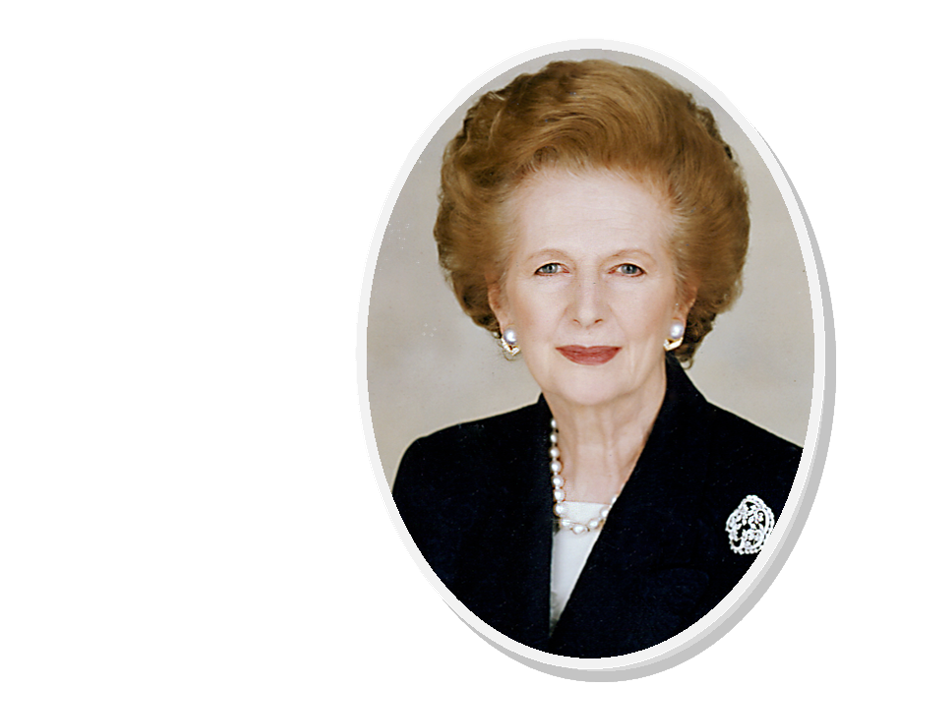Gary Stanley Becker (1930-2014)
People respond to incentives, not to mandates or regulations.
Gary S. Becker
Take Away
While Paul A. Samuelson (Nobel Prize 1970), Milton Friedman (Nobel Prize 1976), or George Stigler (Nobel Prize 1982) probably exercised a greater sway on practical economic policy, Gary Becker expanded the scope of economics as a science like no other before him. Becker is considered among the most innovative economists of our times. He used economic analysis for the systematic explanation of human behavior in all areas of life. His book, The Economic Approach to Human Behavior (1976) summarizes his most important work and is a collection of essays that covers most of the areas of application for which Becker became famous and was awarded the Nobel Prize in 1992. This classic presents an economic analysis of discrimination, crime, democracy, marriage, fertility and family, and the allocation of time or social relationships. Although Becker’s works were initially met with little understanding and hostility, his economic approach to explaining human behavior has become an integral part of economics, sociology, or political science.
It is May 3, 2024, and lest we forget one of the most seminal minds of our times, we should briefly recall the life and work of Gary S. Becker, who died 10 years ago in Chicago. Becker’s groundbreaking approach transformed economics into an interdisciplinary science. He was the first to make the economic rational choice approach one of the most important instruments for researching social problems by applying neoclassical analysis to non-economic problem areas and thus abolished the previous division of labor between sociology and economic theory. Probably due to the fact that Becker applied this insight consistently to all areas of human activity, these transgressions were long resented and sometimes unfairly rejected by the academic conservatism that dominated the social science disciplines at American universities
during most of the 1950s until the mid-1960s.
Gary Becker was born on December 2, 1930, during the Great Depression in the small town of Pottsville, PA, about 130 miles W of New York. However, it was easily audible and recognizable by his gestures that he grew up in Brooklyn, New York City’s most populous borough. Initially far more interested in sports than in any academic endeavor, his extraordinary talents were quickly noted and thus he was urged to apply to Princeton University. At the age of 17 Becker was right away admitted and began to study mathematics, with a minor in economics. Especially William Baumol (1922-2017), Friedrich A. Lutz (1901-1975) and Jacob Viner (1892-1970) had a formative influence on his intellectual development. In 1950 Becker decided to continue studying economics at the University of Chicago. Barley 20 years old he was instantly embraced by the core of the Chicago School of Economics with Milton Friedman (1912-2016), George J. Stigler (1911-1991), Aaron Director (1901-2004), T.W. Shultz (1902-1998) or Frank Knight (1885-1972) among others in the lead. Encouraged by the open intellectual atmosphere at Chicago’s Department of Economics, Becker increasingly turned to areas that had previously been reserved for psychology and sociology.
Hardly ever addressed before, Becker explained in his first book, The Economics of Discrimination (1957) that all discrimination, not only racially determined is based on an economic decision that prefers intentional discrimination to expected profit. His approach was considered foreign or even immoral and was initially coldly rejected by experts and most of his colleagues. However, a rapid triumph of new ideas can hardly ever be the test of an achievement of revolutionary significance. Typically, only the slow maturation of the discipline gives the intellectual pioneer the later deserved recognition. It was not until the mid-1960s that Becker’s The Economics of Discrimination was recognized as a breakthrough and soon became a classic.
Although he experienced widespread academic resistance during the late 1950s, with Milton Friedman’s little push, Becker was appointed by the New York-based National Bureau of Economic Research (NBER). At the same time, he taught several economic classes at Columbia University and worked on the microeconomic foundations of his monumental Human Capital: A Theoretical and Empirical Analysis, with Special Reference to Education which he published in 1964. While to most people a bank account, an assembly line or a steel plant are forms of capital in the sense that they are assets that yield income and other useful outputs over long periods of time, these tangible forms of capital are not the only ones. For Becker schooling, training, expenditures of medical care, or classes on the virtues of honesty also are capital. That is because they raise earnings, improve health, or add to a person’s good habits over much of her/his lifetime. Becker called them Human Capital because people cannot be separated from their knowledge, skills, health, or values in the way they can be separated from their capital, being financial or physical assets. In the first part of this important book, Becker developed an innovative general theory of human capital investment that measures the benefits and costs of any type of education. For him, in addition to social education, training through school or work, nutrition, good or bad habits, values, or even spontaneous willingness to help, are also to be seen as human capital. The book’s second part is dedicated to empirical investigations. According to Becker, human capital grows faster through the accumulation of certain skills in the first years of work than during the later years. Therefore, salary increases for young employees are usually higher than for older ones, because human capital also begins to change negatively as people get older. Despite initial rejection, within just a few years his Human Capital: A Theoretical and Empirical Analysis, with Special Reference to Education, set a new standard in the social science literature.
In 1965 Becker published yet another groundbreaking work, A Theory of the Allocation of Time. Unlike most of his earlier publications, this major essay was immediately received with approval and was endorsed by many of his colleagues of different persuasions and the entire Chicago School. In this essay, Becker laid the analytical foundations for the study of household production and the allocation of time within the household. The analytical framework of household production theory developed in this paper remained a pillar of his later work on the economics of the family and the economics of nonmarket activities more generally. In other words, Becker provided a formal model of households producing outputs like food, children, and housing that bundled goods and time. Becker’s framework allowed for a deeper understanding of the mechanisms of consumer choice, and interpretation of income and substitution effects. Its continuing relevance in empirical economics is a testimony to its power. At just under 37 years old, in 1967 Becker was awarded the John Bates Clark Medal by the American Economic Association for this important work.
However, triggered by the detested American engagement in the Vietnam War, the massive student unrest of the late 1960s made any reasonable academic work especially at Columbia University impossible. Becker returned to the University of Chicago in 1970 and taught there until his death. In 1972 he was elected a Fellow of the American Academy of Arts and Sciences. The intensive work on the time allocation and reproduction rates of various population groups increasingly directed Becker’s interest towards socio-biology and he began to analyze the economic background of the family. Like Friedrich A. von Hayek (1899-1992) long before him, he recognized the family as the central institution of Western culture. In his research, Becker discovered criteria that determine how unmarried women and men compete in a fictitious marriage market in order to maximize their respective benefits, and began to expand his research to include marriage and divorce rates. All of this work culminated in the publication of his major work, A Treatise on the Family (1981). He supplemented the 2nd edition of his book with a series of smaller studies from the 1980s.
Becker’s interest shifted more and more to the important questions of social security, of increasing crime rates in welfare states, the problem of redistribution, the impact of state activity on the creation and maintenance of families or on public restrictions on individual freedom. He published his research as The Economic Approach to Human Behavior in 1976. He not only shows that people do not need to be patronized because they generally know how to use their freedom sensibly. Rather, for Becker, individual freedom is precisely the prerequisite for the individual maximum use of life. Becker also shows how coalitions of organized interests co-opt the state for their own benefit at the expense of third parties and also describes the fierce competition between these interest groups for the plundering of the welfare state. Barely a year 4 later, the essay “De Gustibus Non Est Disputandum” (1977), written together with George J. Stigler, about taste, addictive behavior and the demand for drugs was published. During the 1980s, similar to Milton Freedman’s monthly Newsweek column, Becker also began to writing a monthly column for Business Week. These short essays contributed significantly to the spread of his ideas.
Exactly 35 years after the publication of his seminal The Economics of Discrimination, Gary Becker unexpectedly was awarded the Nobel Prize in Economic Sciences in 1992. For rather obvious political reasons, the Nobel committee’s substantiation for the prestigious award on multiple occasions highlighted that Becker’s works, especially his studies on the family and his firm support for capitalism were still controversial. During the award ceremony in Stockholm, violent protests erupted against Becker’s economic approach and his unyielding socio-economic positions.
In the same year, he accepted an appointment as a Research Fellow at Stanford University’s famous Hoover Institution. Due to his unstable health, he spent Chicago’s rough winter months in California. In 1997, Becker published a highly original book The Economics of Life together with his wife, the eminent historian Guity Nashat. In this volume, Becker and Nashat did not shy away from advocating controversial changes in public policy and personal behavior, such as legalizing drugs, selling the rights to immigrate, limiting the terms of Supreme Court justices, or privatizing social security among countless other topics. This collection of his 138 popular monthly columns, written for Business Week cover subjects well beyond the traditional range of economics, from changing the role of women in modern economies to crime, immigration, drugs or marriage contracts. However, they included also the effects of the stock market collapse in 1987, the rigging of the Japanese stock market or the competition between religions, communism and the “Swedish Way” or drug addictions. These thought-provoking essays aroused heated debate upon their original publication, and they will no doubt continue to do so.
Gary S. Becker was awarded well over 20 honorary doctorates and was one of the few to be honored with the Presidential Medal of Freedom, the highest civilian order in the USA. His enormous work is characterized by the distinct analytical observation of people in their daily environment, by the coherence of his thinking and true scholarship. His academic influence on the social sciences is seminal, his proverbial modesty, his honest friendship, wit and willingness to help are legion. To date, the best introduction to
Becker’s oeuvre is Pedro S. Schwartz’ The Essence of Becker (Stanford, 1995). This volume is the fourth successful collection in the Hoover Institution’s salutes to its Nobel Prize winners, the others being The Essence of Hayek, The Essence of Friedman, and The Essence of Stigler.
































